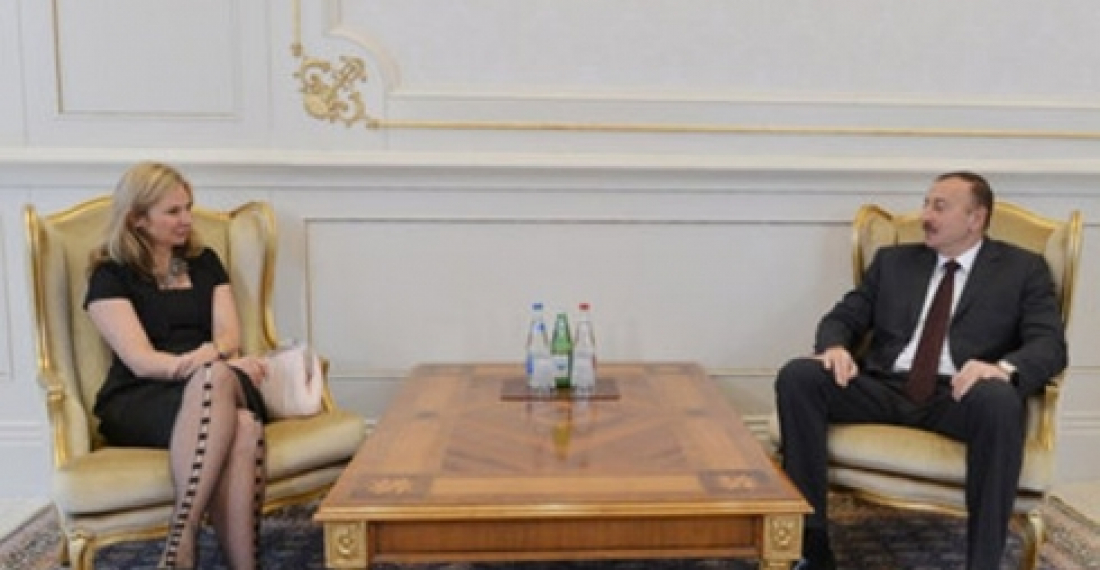The new Head of the European Union Delegation in Azerbaijan, Swedish diplomat Malena Mard, has outlined the priorities of the European Union in its work with Azerbaijan over the coming years. Mard said that Education, the Rule of Law and Regional Development will be the main areas of focus, and that this has now been agreed with the Azerbaijani government.
Mard highlighted education as an area where the EU intend to co-operate more actively than has been the case in the past, with areas such as vocational training; academic exchanges and pre school education cited as being of particular importance.
Malena Mard assumed office as the Head of the European Union Delegation on 17 December, when she presented her credentials to Azerbaijani president Ilham Aliev. On that occasion President Aliev praised Azerbaijan-EU cooperation, and expressed hope that these ties would continue to expand even further.
source: commonspace.eu with agencies
photo: Malena Mard presenting her credentials as Head of the European union Delegation to Azerbaijan to President Ilham Aliev on 17 December 2013.







